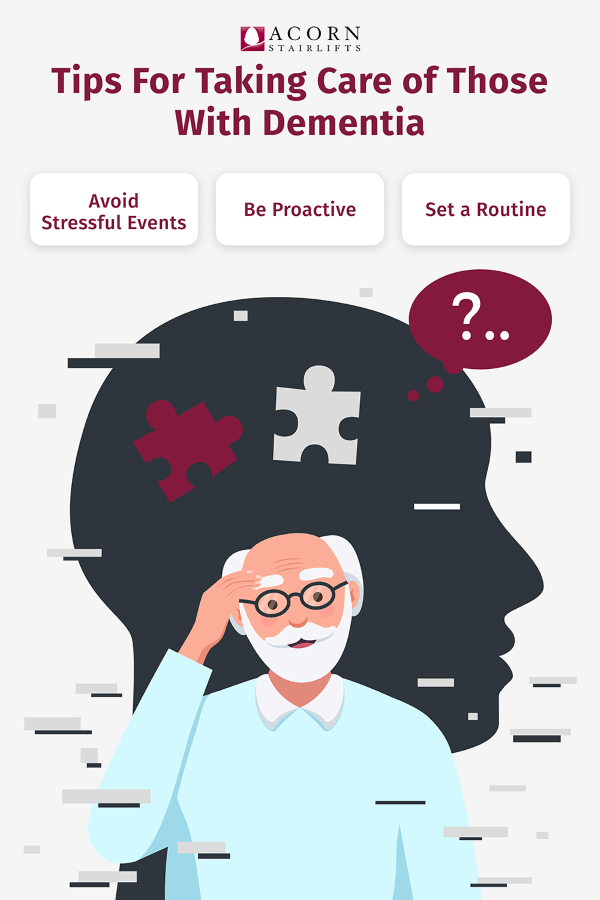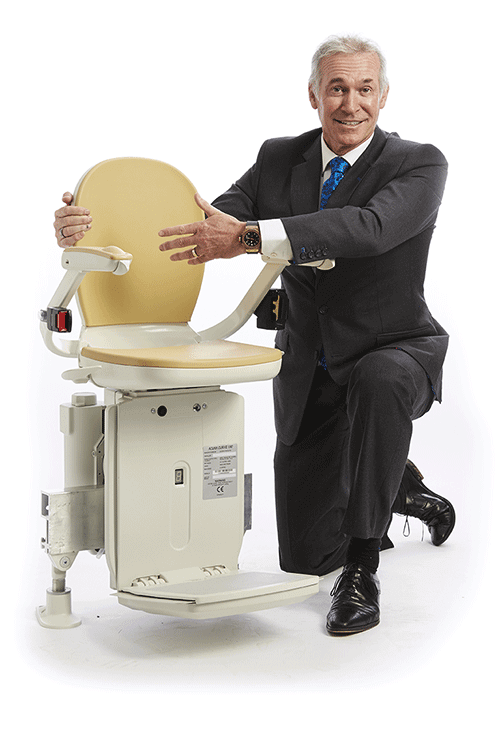Whether it’s one of your loved ones, your next-door neighbour, or your close friend, chances are that you probably know someone who lives with dementia.
With more than 55 million people worldwide who have dementia, this disease is a prominent phenomenon screaming to be better understood and more appropriately addressed, not only in our families and communities, but on a global scale.
Read on to learn more about dementia, signs of dementia, and tips on how to better understand and care for your loved ones who live with dementia.
What is Dementia?
Dementia is an umbrella term for several diseases that destroy nerve cells, causing damage to the brain and typically leading to a deterioration in cognitive functioning that is beyond what is expected from the normal ageing process.
Mainly affecting older people, dementia is a syndrome that affects thinking, memory, and the ability to perform daily activities.
It is also a progressive disease, meaning that the illness will continue to get worse over time.
The most common form of dementia is caused by Alzheimer’s Disease, which makes up 60 to 70 percent of cases.
While there is no cure for dementia, a lot more action can be taken to improve the overall quality of life of both people living with dementia and those who care for them.
Signs of Dementia (Early Stages):
- memory loss
- difficulty concentrating
- finding it hard to carry out familiar daily tasks, such as getting confused over the correct change when shopping
- struggling to follow a conversation or find the right word
- being confused about time and place
- mood changes
Signs of Dementia (Advanced Stages):
- memory problems – people may not recognise close family and friends, or remember where they live or where they are
- communication problems – some people may eventually lose the ability to speak altogether. Using non-verbal means of communication, such as facial expressions, touch and gestures, can help
- mobility problems – many people become less able to move about unaided. Some may eventually become unable to walk and require a wheelchair or be confined to bed
- behavioural problems – a significant number of people will develop what are known as "behavioural and psychological symptoms of dementia". These may include increased agitation, depressive symptoms, anxiety, wandering, aggression, or sometimes hallucinations
- bladder incontinence is common in the later stages of dementia, and some people will also experience bowel incontinence
- appetite and weight loss problems are both common in advanced dementia. Many people have trouble eating or swallowing, and this can lead to choking, chest infections, and other problems.
5 Tips for Caring for Loved Ones Who Have Dementia
1. Focus on Familiarity
New or unfamiliar environments, objects, or situations can cause anxiety and agitation for individuals with dementia.
Because dementia progressively affects memory and cognitive function, familiar things can serve as anchors to the person's past and help preserve memories.
Familiarity brings a sense of comfort and security to individuals with dementia. Recognising familiar objects, people, and surroundings can evoke positive emotions and memories, reducing feelings of confusion, anxiety, and distress.
This is why it is important to surround these individuals with familiar objects, photographs, or keepsakes that trigger reminiscence and promote connections with their personal history, fostering a sense of identity and self-worth.
Familiarity can also aid communication with individuals with dementia. Using familiar topics, activities, or objects as conversation starters can help bridge gaps in memory and understanding. Engaging in discussions about familiar subjects can foster a sense of connection and promote more meaningful interactions.
Similarly, familiar activities or hobbies that the person enjoyed before the onset of dementia can still bring them joy and a sense of purpose. Engaging in familiar activities, such as gardening, painting, or listening to favorite music, can promote a sense of engagement and allow the person to experience a sense of accomplishment and fulfillment.
When you choose to focus on familiar things, you are fostering a calm and predictable environment that minimises this stress and reduces the likelihood of disruptive behaviours.
This helps create a sense of safety, stability, and emotional well-being that allows the person with dementia to navigate their surroundings with more confidence.
2. Develop Routines and Try to Stick with Them
Individuals with dementia often experience memory loss and confusion, which can lead to feelings of disorientation and anxiety.
However, routine can combat this confusion by providing a predictable structure and familiarity in their daily lives, which can help them feel more secure and reduce stress.
Knowing what to expect and following a consistent schedule can provide a sense of comfort and stability to someone who is constantly overwhelmed with anxiety and confusion.
Furthermore, routines can also help individuals with dementia maintain a better sense of time, place, and purpose. Following a regular schedule allows them to understand the sequence of activities and makes it easier for them to engage in daily tasks, improving their ability to orient themselves within their environment.
From an emotional standpoint, following a routine can also help minimise behavioural issues associated with dementia, such as agitation, restlessness, or resistance to care.
By providing a predictable and structured environment, individuals with dementia may feel more settled and less likely to experience disruptive behaviours triggered by confusion or uncertainty.
3. Be Proactive—Avoid Stressful Events or Situations
Remember, while it may not always be possible to completely avoid stressful situations, being aware of the potential triggers and actively working to minimise stress can significantly improve the caregiving experience for both you and the person with dementia.
Stressful situations can often trigger agitation and disruptive behaviours in individuals with dementia, as people with dementia are highly sensitive to the emotional atmosphere around them. This stress can be contagious, drastically impacting their mood and behaviour.
Triggers that cause further chaos or confusion such as loud noises, crowded environments, conflicting routines, or overwhelming tasks can cause distress and confusion for anyone, but especially for people with dementia.
These stressful situations can increase the likelihood of accidents or mistakes while caring for someone with dementia. Furthermore, clouding of judgment due to stress and anxiety can hinder effective communication with someone who has dementia.
This is why it is important to create an atmosphere of calmness and clarity to facilitate understanding and engagement.
By minimising stress and creating a positive and relaxed environment, you contribute to a more pleasant and comfortable atmosphere, which can improve the overall well-being and quality of life for someone with dementia.
Avoiding stress also allows you to better focus on using clear and concise language, non-verbal cues, and other communication strategies to effectively interact with the person and maintain a positive connection.
Ultimately, by making an effort to minimise stressors, you can create a calmer and more comfortable environment that promotes a sense of security and reduces agitation for your loved one.
4. Allow People with Dementia to Be as Independent as Possible
Whether you are a teenager hitting the open road for the first time in your new car, a toddler wanting to button up your shirt “all by yourself,” or an adult rolling your eyes when your parents still try to offer you unsolicited advice, we all crave some form of independence in our lives.
Just like any other human being, maintaining independence allows individuals with dementia to retain a sense of self and dignity. It promotes their autonomy, decision-making abilities, and feelings of self-worth.
Maintaining independence allows individuals with dementia to actively participate in their daily lives and maintain a higher level of functioning. It helps preserve their abilities, promotes positive experiences, and contributes to an overall higher quality of life.
Encouraging independence involves keeping individuals physically and mentally active.
For example, engaging in everyday tasks, such as dressing, grooming, or meal preparation, can provide opportunities for movement, coordination, and cognitive stimulation. These activities help maintain physical function and mental agility for as long as possible.
Perhaps most importantly, independence also contributes to a sense of control and satisfaction, which positively impacts emotional well-being.
Individuals with dementia may feel less frustrated or dependent when they are able to carry out tasks independently. It can reduce feelings of helplessness and counteract the losses they may experience due to cognitive decline, enhancing their overall emotional state and maintaining their sense of identity.
5. Cultivate Compassion—Be Empathetic to Their Emotions
While sometimes you may feel frustrated, overwhelmed, or that your patient or loved one is being particularly difficult, even though you are doing your best to care for them, understanding dementia involves putting yourself in the shoes of those affected by the condition.
How would you feel if you awoke surrounded by a sea of unfamiliar faces who claim to be your family? What would it feel like to be forced to depend on another person, sacrificing your dignity just to be able to relieve yourself? What would it be like to be bed-bound the majority of the time, unable to walk anywhere alone without someone rushing to your aide?
Cultivating empathy and compassion allows you to appreciate their perspective, emotions, and challenges. This mindset can help you better connect with individuals with dementia and provide appropriate support.
Learn effective communication strategies for interacting with individuals with dementia. Use simple and clear language, maintain eye contact, speak slowly and calmly, and give them ample time to process information and respond.
You can also further your knowledge on how to better interact with people with dementia by spending time observing individuals with dementia to understand their behaviours, patterns, and preferences. Listening to their words, expressions, and non-verbal cues can provide valuable insights into their needs and emotions.
Don’t forget that, like you, your loved one faces a unique set of struggles in their lives that you can never fully understand.
Treat others the way that you would like to be treated—Spread more kindness, acceptance, and love in a world that needs it.

